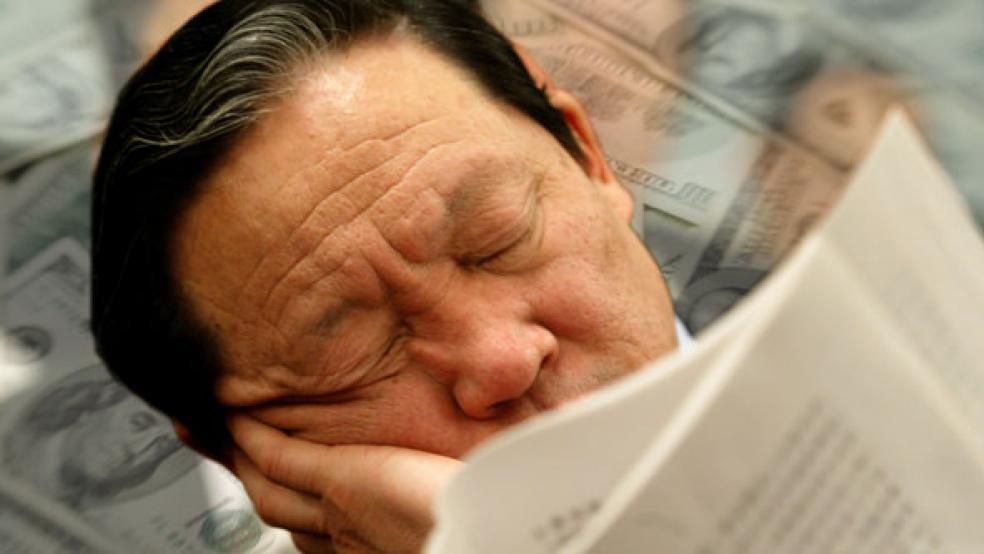Lay your head on the pillow at night and you hardly feel as if you’re doing yourself a favor. Sleep just feels like – sleep. Yet growing bodies of research in the field of sleep science continue to show that getting a good night’s sleep on a regular basis is a key part of staying physically healthy and mentally productive throughout our increasingly long lives.
The problem is that we still take sleep for granted. About a third of us are chronically sleep deprived, yet we skimp on sleep – even as we go out of our way to eat fresh, organic foods or log sweaty miles on stationery bikes to keep ourselves fit and healthy.
Related: A Good Night’s Sleep Gives You an Edge at Work
Eating well and getting exercise are critical, of course – but so, too, is getting enough sleep to replenish and restore our bodies. It’s why we need to change our perceptions about shuteye.
“Too many people say, ‘I have a big presentation at work’ or ‘I have to get this project done for my client’ – then pull all-nighters or sleep just a few hours, thinking that’s okay,” said David K. Randall, author of Dreamland: Adventures in the Strange Science of Sleep. “They just drink coffee and say, ‘I’ll be fine.’”
Try that once or twice and you’ll get by – but forget about it long term.
Our bodies and brains aren’t built for that behavior, advises Randall, who immersed himself in the science of sleep for a year to research his book. “If you consistently get six hours or less of sleep a night, studies show you’re basically functioning at the same level as someone who’s legally drunk.”
Consider that roughly 20 percent of car accidents are caused by drowsy driving, according to the Centers for Disease Control and Prevention. Sleep-deprived pilots have been involved in several near misses in the sky in recent years. And the dangers of nodding off on the job – or going into a “hypnotic haze” – are all too real after the recent Metro North train derailment in the Bronx, N.Y., which killed four people and injured 70. The engineer, who was driving the train at 82 miles an hour on a curved section of rail in which the speed limit was 30 miles an hour, told authorities later that he became “dazed” just before the crash occurred.
Related: Sleepless in America: A $32.4 Billion Business
Experts say it’s high time we realize that getting a decent night’s sleep is critical not just for good health but for maintaining our mental abilities. Here are six ways to help ensure we give sleep the priority it deserves:
Cut the light at night. It’s critical to reduce our exposure to light at night, especially whitish blue light. “Our brains are essentially built for a world in which the sun is the only bright light. When the brain perceives bright light at night, it signals us to stay awake longer – making it harder for us to fall asleep,” says Randall. One of the worst things we can do before bedtime is watch TV, use our iPads, or check emails on our laptops or smartphones – exactly what so many of us do regularly. “The white light of the screen is mimicking sunlight and telling our brains, ‘It’s not time to sleep yet.’” No wonder so many of us toss and turn for an hour or more before finally drifting off.
Know the links to what we drink. As much as we love coffee or tea at night, it’s far better to cut off the caffeine well before evening. Even caffeine ingested six hours before bedtime has notable disruptive effects on sleep, according to a recent study reported in The Journal of Clinical Sleep Medicine.
Heavy, spicy foods at night will also interfere with sleep – as will alcohol. “Alcoholic drinks might help us fall asleep faster, but as our bodies metabolize the sugar in those drinks, we’ll wake up more during the night than we would otherwise,” says Randall. That’s why you can feel groggy the morning after even if you’re not hung over.
Be wise about exercise. It’s not just the amount of physical exercise we get in a given day that’s important - “it’s how hard we think that exercise was. Our brains share the message, ‘I worked hard. I deserve to sleep,’” says Randall. It’s also never smart to exercise vigorously right before bedtime.
Remember regular bedtimes (and wake times) aren’t just for kids. A regular sleep schedule trains our bodies to fall asleep at generally the same time every night – and wake up at the same time the next morning. Yes, this applies to weekends as well. And if we’re in sleep debt, short naps during the day can help.
Understand that pills won’t fix all ills. A recent National Institutes of Health study determined that sleeping pills make most people fall asleep only about 20 minutes sooner than placebos do. Popular products such as Ambien and Lunesta “don’t always work as effectively as people seem to give them credit for,” says Randall. While some people swear by the medication, it’s wise to consider the pros and cons of prescription sleep meds before getting into the habit.
Consider doing a sleep study. Quality sleep is so vital to good health and mental concentration that many experts recommend detailed sleep exams to get to the root of serious problems. “A large segment of the population is not being treated properly,” David Volpi, M.D., a New York sleep expert, told CBS New York. “If somebody’s not getting enough sleep, they’re doing themselves a disservice by not having a real exam.” Testing can certainly be a lucrative business: More than 50 million Americans are likely to suffer from a sleep disorder at some point in time, according to the National Sleep Foundation.
Top Reads from The Fiscal Times:




